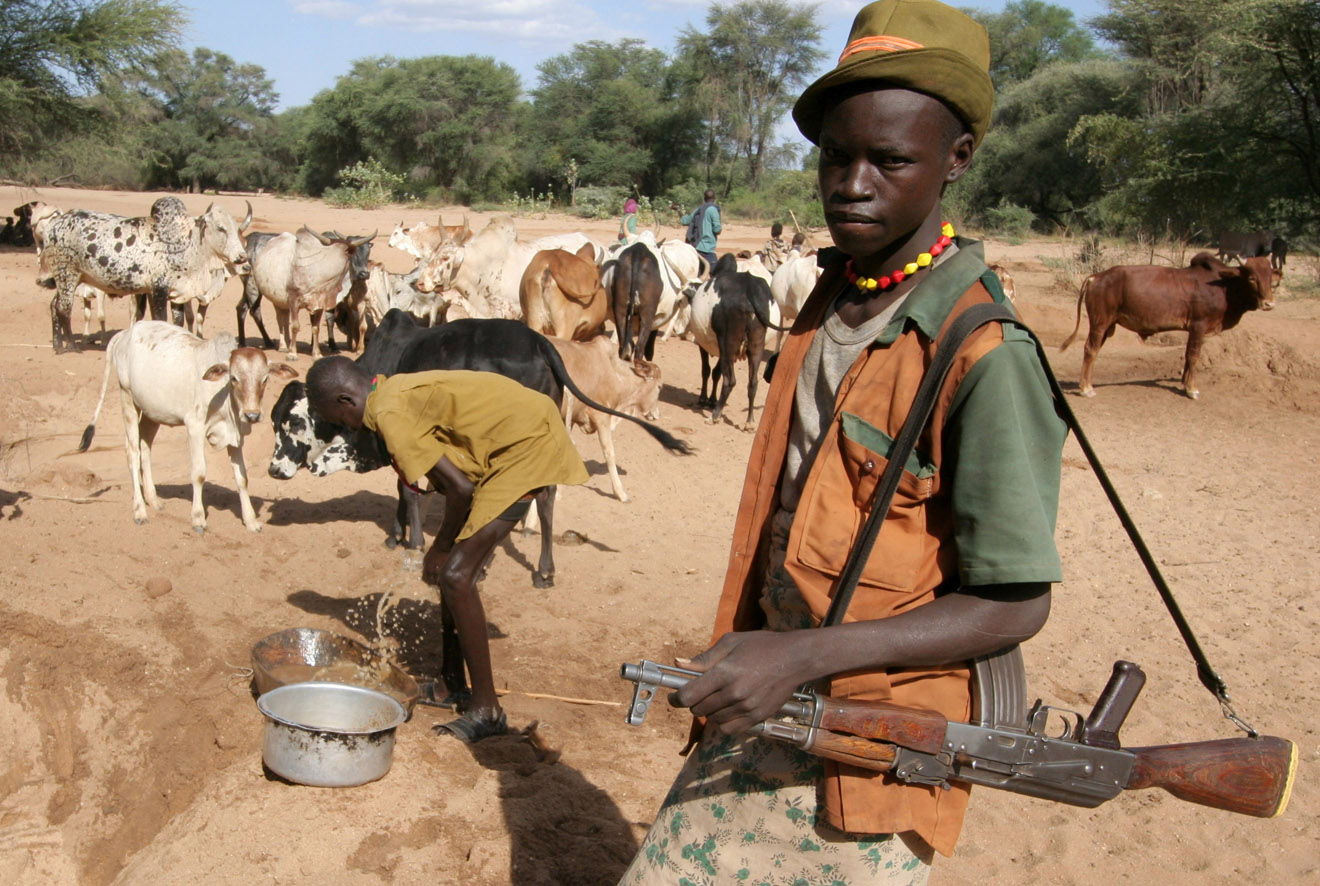"About 300 raiders from Pokot North [a neighbouring region] attacked the area on the eve of 1 December," said George Ayonga, Turkana Central District Commissioner. Lorengippi is about 200km from the main town of Lodwar.
"Two men, four women and two children were killed," Ayonga said. Five other people were seriously injured, according to the Kenya Red Cross Society (KRCS).
"Their [the raiders] intention was to steal and kill," he said, as the 300 raiders also targeted women and children during the raid.
Four of the raiders were killed when the locals retaliated against what was a well-coordinated attack, according to Ayonga.
"Although we have been conducting a lot of peace and reconciliation awareness, this appears not to be paying dividends," he said.
Livestock rustling and counter-attacks are common in the mainly pastoralist region, especially between the Turkana ethnic group and the neighbouring Pokot, with attacks increasing during school holidays. The widespread availability of firearms has added to the insecurity.
According to Ayonga, most of those involved in the raid were young.
"About 200 people have now been displaced out of the Manyatta [a kraal] in Lorengippi," Titus Mung’ou, KRCS acting communications manager, told IRIN.
An estimated 2,000 head of livestock, including camels, donkeys, sheep, goats and cattle were looted in the attack; residents also lost property and food. Most depend on food rations provided by the government.
Mung’ou said there was now an urgent need for food and non-food items, such as temporary shelter, for the affected population, which is already suffering the effects of a prolonged drought.
Parts of Turkana Central have recorded global acute malnutrition levels of up to 22.5 percent in recent surveys.
"Security should also be provided to enable the people to return to their manyatta," he said.
Security personnel have been deployed to a different area of the district to deter further attacks.
As of 2 December there was still tension in the area, with the dead still lying at the scene, said KRCS. The local Turkana do not traditionally bury the dead. KRCS and religious personnel are helping arrange for the burials.
aw/mw
This article was produced by IRIN News while it was part of the United Nations Office for the Coordination of Humanitarian Affairs. Please send queries on copyright or liability to the UN. For more information: https://shop.un.org/rights-permissions





